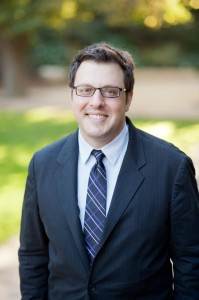 On Wednesday, April 16, Kelvin Smith Library will host a presentation by 2013 Freedman Fellow Mark Pedretti. Pedretti will discuss the challenges and solutions related to his research, and how they were addressed by the Freedman Fellows Program and its corresponding support. The presentation is free, open to the public and will be held in Kelvin Smith Library’s Dampeer Room at 3 p.m. Pizza will be served.
On Wednesday, April 16, Kelvin Smith Library will host a presentation by 2013 Freedman Fellow Mark Pedretti. Pedretti will discuss the challenges and solutions related to his research, and how they were addressed by the Freedman Fellows Program and its corresponding support. The presentation is free, open to the public and will be held in Kelvin Smith Library’s Dampeer Room at 3 p.m. Pizza will be served.
Since the atomic bombing on Aug. 6, 1945, the name “Hiroshima” has come to signify less the name of a city than an unthinkable event or an incalculable fear of nuclear war. While an official culture of commemoration has grown up around the site of the actual bombing, Pedretti examines literary artifacts that paint a very different image of the city, and suggests a different form of historical memory. Drawing primarily upon Ibuse Masuji’s 1965 novel Black Rain (Kuroe Ame), along with photographic archives of Hiroshima both before and after the bombing, Pedretti uses the novel’s obsessive attention to place names as a way of virtually reconstructing the city, and of suggesting the relative importance of surrounding towns and villages in witnessing the effects of the bombing. The goal of this project has been to use geospatial information coordinating technology to precisely describe the locations of Ibuse’s novel, and to visualize a place that, for many Americans, remains a distant abstraction.
Ann Holstein (GIS specialist, Freedman Center for Digital Scholarship) will present with Pedretti to discuss how geospatial technologies were used in his research to show frequencies of place names as a hotspot density map. Holstein will explain the basics of GIS so other scholars may consider its many uses for projects that may include a spatial data component.
For more information, visit library.case.edu/ksl/freedmancenter/specialprograms/fellows/.
The Freedman Fellows Program is a partnership between the College of Arts and Sciences and Kelvin Smith Library. This program aims to identify and support scholarly research of faculty at Case Western Reserve University. Awards are granted to faculty to sustain projects that are currently active, hold scholarly or instructional value, integrate the use of digital tools and have clear project outcomes in support of digital scholarship.
